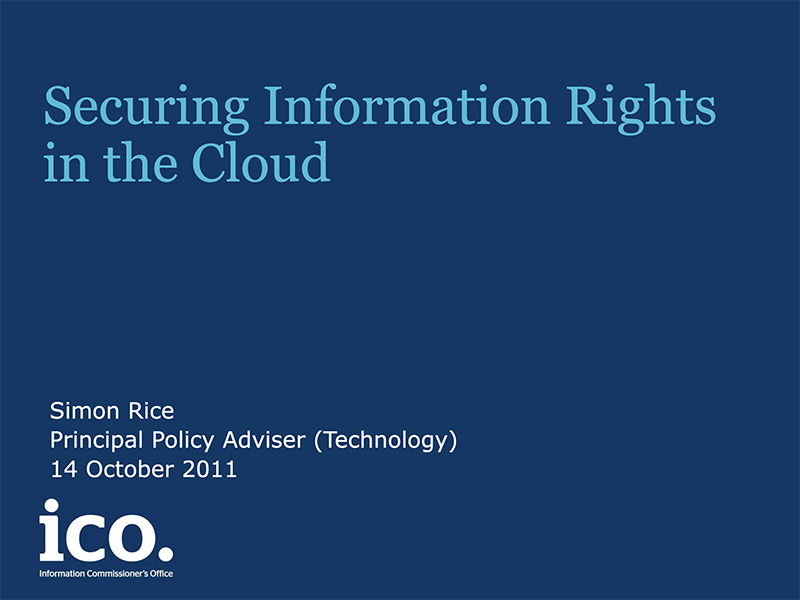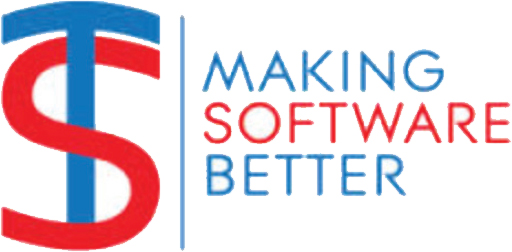Improving Software for Society
Symposiums
CLICK ON THE IMAGES TO VIEW AND DOWNLOAD SYMPOSIUM PROGRAMMES AND SLIDESHOW PRESENTATIONS.
21st CENTURY COMPUTING – 2000
The 21st Century Computing theme covered frontier technologies and where they might take us during the course of the next few decades. Our international panel of distinguished researchers took delegates on a grand tour of the most intriguing questions in 21st Century Informatics:
– Given that the conscious mind depends upon the architecture of the brain, could we engineer a machine that has both imagination and emotions, and would such a machine be conscious?
– Soon after 2010, when the CMOS endpoint repeals Moore’s Law, could nanotechnology and coherent quantum devices satisfy our relentless demand for more computational power?
– Will teleportation (nonlocality) be harnessed to devise new types of quantum logic gate, and might quantum devices be fabricated out of the very stuff of life itself – DNA?
– Should we redesign the human-computer interface to accommodate the environmentally and biologically impaired eg soldiers, astronauts, the elderly, and disabled people?
– Are we bobbing around in a flood of data from which we abstract too little useful information and, worse still, are crude data reduction methods misinforming public policy?
EVENT DATE: October 2000
SPEAKERS: Prof Igor Aleksander FREng, Prof Susan A Greenfield CBE, Prof Anthony J G Hey FIEE FBCS, Dr Colin P Williams, Prof Alan F Newell FRSE, Dr Mahes Visvalingam

IMPROVING SOFTWARE FOR SOCIETY – 2017
Our four speakers considered how to improve software for society, looking at the current failings in the industry and what needs to be addressed. Followed by discussion.
VENUE: Kew Gardens
SPEAKERS: Sir Edmund Burton, Ian Bryant, Igor Schagaev, Paul Lynham
RECORDINGS: Ian Bryant, Igor Schagaev, Paul Lynham
SLIDESHOW PRESENTATIONS: Ian Bryant, Igor Schagaev, Paul Lynham

THE INTERNET OF THINGS – 2014
Our four speakers considered the ‘internet of things’. Summary of the topic headlines below: Gen Z No-Skills-Required Tech Bootcamps & Evolving Professionalism.
VENUE: Kew Gardens
SPEAKERS: Vlad Trifa, Adrian Wright, William Webb, Angela Sasse


GEN Z NO SKILLS REQUIRED BOOTCAMPS
In a bold move to bridge the digital skills gap and enhance employment prospects for the younger generation, the UK government has announced the launch of innovative Skills Bootcamps tailored specifically for Generation Z. This initiative stands out because it uniquely targets individuals with absolutely no prior experience or skills in the tech field, offering them a golden opportunity to leapfrog into high-paying tech careers.
Revolutionizing Tech Education: Recognizing the urgent need for skilled professionals in areas such as cloud computing, cybersecurity, and software development, these bootcamps are designed from the ground up to be accessible. They require no previous tech experience or education, thus lowering barriers to entry for a demographic traditionally sidelined by the tech industry due to lack of skills or formal qualifications.
The Promise of a Bright Future: Participants of these bootcamps are not just offered training; they are promised a pathway to careers with salaries that can average over £70,000—a figure that significantly outpaces the starting salaries of many traditional career paths for young people entering the workforce. This initiative boldly addresses both the skills shortage in the UK’s tech sector and the economic aspirations of a generation eager to make their mark in the world.
A Win-Win for the Economy and Youth: By focusing on those with no skills, the government is not just filling immediate job vacancies but is fostering a more inclusive tech workforce. This strategic move is expected to pay dividends by creating a more diverse talent pool, driving innovation, and strengthening the UK’s position as a global tech leader.
Nurturing Talent from the Ground Up: The commitment to training individuals with no prior experience underscores a belief in the potential of Gen Z to contribute meaningfully to the tech industry, regardless of their starting point. It’s a testament to the transformative power of education and training, and a reminder that talent exists in many forms and often only needs an opportunity to shine.
A Careful Balancing Act: While the initiative is ambitious and holds great promise, it also presents challenges, including ensuring that the training provided is of high quality and matches industry needs. Moreover, the integration of these newly skilled workers into the tech ecosystem must be managed to complement the existing workforce, ensuring that the initiative enriches the industry without displacing those already in it.
In conclusion, the UK government’s Skills Bootcamps for Gen Z represent a visionary approach to solving the tech industry’s skills crisis and providing unprecedented career opportunities for young people. By focusing on individuals with no prior skills, the initiative not only democratizes access to tech education but also promises to reshape the future of the tech workforce in the UK. To find out more: www.gov.uk/government/news/gen-z-offered-doubled-salary-prospects.

EVOLVING PROFESSIONALISM – FROM TRADITIONAL SOFTWARE TO MOBILE APP
The realm of software development has witnessed a transformative journey from the era of traditional software developers and programmers to the dynamic world of modern mobile app developers. This shift not only reflects technological advancements but also a change in methodologies, tools, and professional standards. This article aims to explore these roles, highlight their differences, and assess the levels of professionalism in the context of IT and Standards professionals.
1. Traditional Software Developers and Programmers: In the early days, software developers and programmers were regarded as craftsmen in the digital landscape, tasked with writing, debugging, and maintaining computer program code. This role demanded a deep understanding of programming languages, algorithms, and application system architecture. CHARACTERISTICS: Deep Specialization – Mastery of specific programming languages or systems. System-Level Understanding – Comprehensive knowledge of code interaction with hardware and software layers. Methodical Approach – Emphasis on structured programming, documentation, and testing. Professionalism – Rooted in rigorous computer science backgrounds, traditional developers epitomized methodical, well-documented, and robust software development practices.
2. Application Developers: Bridging the gap between application development and end-users, application developers focused on creating software for specific user interface functions or solving particular problems. CHARACTERISTICS: User-Centric Design – Prioritizing business requirements, user experience and usability. Business Acumen – Understanding the business or sector needs. Versatile Skills – Balancing technical proficiency with interface design and functionality. Professionalism – Combining technical skills with practical applications design, they worked closely with clients or stakeholders, blending technical acumen with user needs.
3. Modern Mobile Application (Mobile app) Developers: Today, mobile application developers navigate a landscape marked by rapid development cycles, clients-servers cross-platform demands, and a strong focus on user engagement and scalability. CHARACTERISTICS: Agile Methodologies – Fast-paced, iterative application development models. Cross-Platform Expertise – Skills in developing for various platforms using diverse languages and tools. User Engagement Focus – Prioritizing engaging and intuitive user experiences. Professionalism – Characterized by adaptability, continuous learning, and an awareness of market trends and user preferences.
4. The Debate on Professionalism in Mobile App Development: The question of professionalism in mobile app development is contentious. Modern languages, tools and frameworks, such as IDEs, cross-platform libraries, and drag-and-drop builders, have simplified aspects of mobile app and application development. The field attracts individuals from varied backgrounds, some with formal IT education and others self-taught or from non-technical disciplines. CHARACTERISTICS: Quality of Output – Despite the use of high-level tools, the ability to deliver functional, user-friendly, and reliable applications is a professional hallmark. Problem-Solving and Continual Learning – Professionalism is reflected in problem-solving capabilities, performance optimization, security, privacy, and staying abreast with trends and practices.
5. Understanding of Underlying IT Principles: While not all application developers possess an in-depth understanding of low-level computing, fundamental IT concepts remain crucial. This includes basic programming concepts, the software development lifecycle, and user experience design principles. The field’s vastness means no single developer can master all areas, leading to specializations in front-end or back-end development or a more generalized skill set.
CONCLUSION: The transition from traditional application development to modern application development mirrors changes in technology and societal needs. While traditional roles emphasized depth and methodical approaches, modern roles demand agility, a holistic understanding, and continual learning. For IT and Standards professionals, recognizing this evolution is critical in shaping standards and training programs that align with current and future industry demands. This nuanced understanding ensures that the industry maintains the high levels of professionalism that have long been its cornerstone, adapting to the evolving technological landscape.
CRYPTOGRAPHY & CYBER SECURITY – 2012
The process of designing cryptography into new technology, major trends in malware development and an insight into mobile security.
VENUE: London Film Museum
SPEAKERS: Simon Lavington, David Emm, Keith Martin, Craig McDermot

THE CLOUD – 2011
Is there anything new up there? A new business model. Enterprise IT in the era of cloud computing. Securing information rights in the cloud. About freeform dynamics.
SPEAKERS: Neil Cross, Richard Hall, Henry Nash, Simon Rice, Dale Vile
SLIDESHOW PRESENTATION: Neil Cross – Embracing the Cloud

SLIDESHOW PRESENTATION: Richard Hall – To boldly go ISV to SaaS

SLIDESHOW PRESENTATION: Henry Nash – The Virtual Datacentre

SLIDESHOW PRESENTATION: Simon Rice – Privacy by Design

SLIDESHOW PRESENTATION: Dale Vile – A View from above the Clouds









